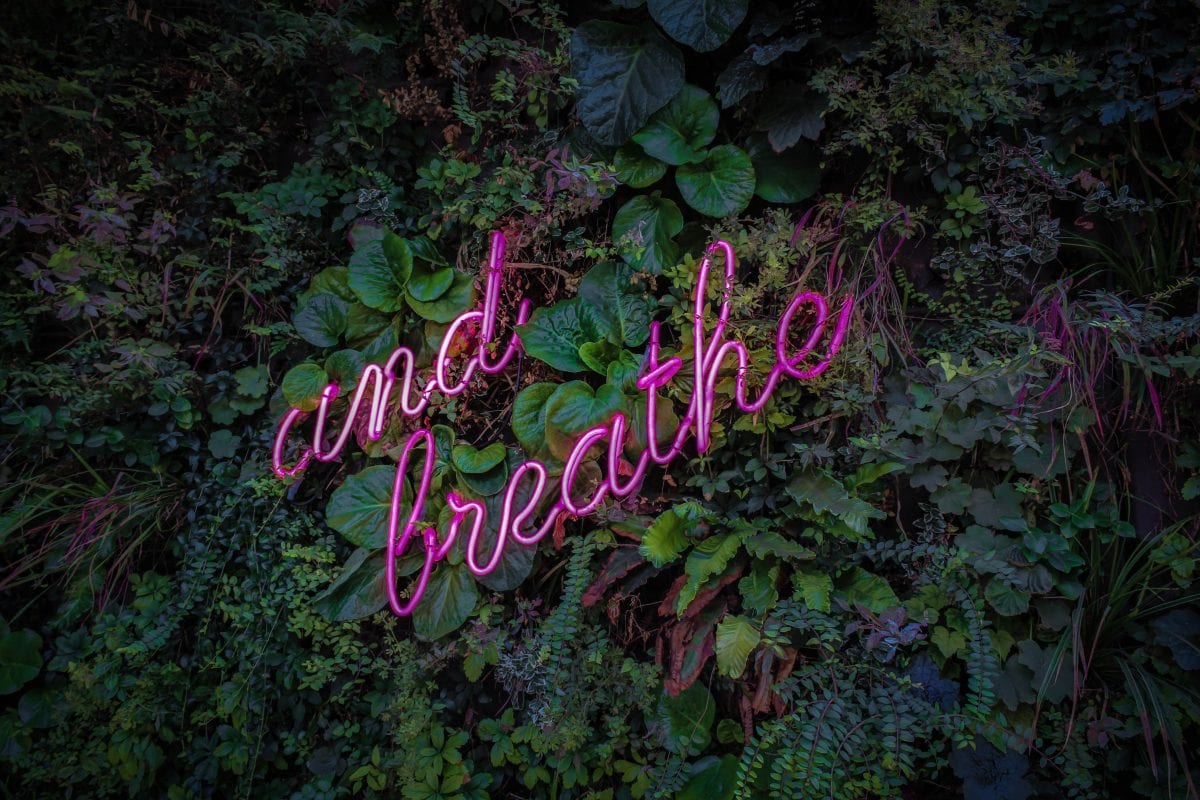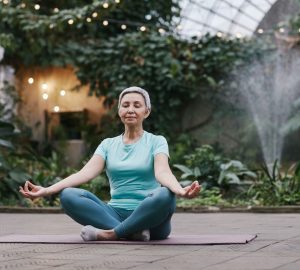Have you ever woken up with that to-do list already running circles in your brain? How can we ever hope to tune down our digital chaos if we can’t even tune down our internal stresses?
Believe it or not, meditation works!
If you find yourself struggling to start your day, to manage your time, and to stay focused all day long, you need to try meditating.
Starting your day with even a brief period of meditation is a proven strategy for overall wellness and wellbeing.
Benefits of Meditation
Study after study shows real, physical benefits to daily meditation practice. Neurologists, biologists, psychologists, and others have focused on all the possible outcomes, connecting anecdotal evidence to real science. And every time, the human body proves that meditation makes it better.
For centuries, people have turned to meditation to bring calm to their lives. Practitioners claimed mental focus and clarity as well as health and vitality. Science is now catching up.
The NIH has compiled a long list of positive benefits to meditation, recognized medical outcomes based on scientific study. These include:
- Reduced stress and anxiety
- Reduced joint pain
- Management and reduced symptoms of gastrointestinal diseases, including ulcerative colitis and irritable bowel syndrome
- Anger management
- Lower blood pressure
- Better sleep patterns and habits
- Better immune system regulation
Remarkably, many studies show that the human brain, itself, changes during and after meditation. Meditation triggers the amygdala, the part of the brain that handles emotions, and decreases stress responses there. It also leads to increased gray matter in the brain, which wards off aging. Meditation may also increase the hippocampus, leading to sharper memory and better mental agility.
In other words, meditation does, as everyone has been saying for centuries, keep you happier, more focused, smarter, and younger!
How to Meditate
“The purpose of mindfulness meditation is to become mindful throughout all parts of our life, so that we’re awake, present and openhearted in everything we do.” -Tara Brach, Psychotherapist and Meditation Teacher, Washington D.C.
Have you ever woken up with that to-do list already running circles in your brain? How can we ever hope to tune down our digital chaos if we can’t even tune down our internal stresses?
Believe it or not, meditation works!
If you find yourself struggling to start your day, to manage your time, and to stay focused all day long, you need to try meditating.
Starting your day with even a brief period of meditation is a proven strategy for overall wellness and wellbeing.
Benefits of Meditation
Study after study shows real, physical benefits to daily meditation practice. Neurologists, biologists, psychologists, and others have focused on all the possible outcomes, connecting anecdotal evidence to real science. And every time, the human body proves that meditation makes it better.
For centuries, people have turned to meditation to bring calm to their lives. Practitioners claimed mental focus and clarity as well as health and vitality. Science is now catching up.
The NIH has compiled a long list of positive benefits to meditation, recognized medical outcomes based on scientific study. These include:
- Reduced stress and anxiety
- Reduced joint pain
- Management and reduced symptoms of gastrointestinal diseases, including ulcerative colitis and irritable bowel syndrome
- Anger management
- Lower blood pressure
- Better sleep patterns and habits
- Better immune system regulation
Remarkably, many studies show that the human brain, itself, changes during and after meditation. Meditation triggers the amygdala, the part of the brain that handles emotions, and decreases stress responses there. It also leads to increased gray matter in the brain, which wards off aging. Meditation may also increase the hippocampus, leading to sharper memory and better mental agility.
In other words, meditation does, as everyone has been saying for centuries, keep you happier, more focused, smarter, and younger!
How to Meditate
“The purpose of mindfulness meditation is to become mindful throughout all parts of our life, so that we’re awake, present and openhearted in everything we do.” -Tara Brach, Psychotherapist and Meditation Teacher, Washington D.C.
Meditation is all about taking the time for yourself. In our hectic world, that is often hard to do, so taking as little as a few minutes when you first get up in the morning will lead to long-term, incredible benefits.
Begin by finding a quiet space for yourself. This could be in a chair, on the floor, or anywhere you are comfortable. Breathe deeply and calmly, letting your mind wander… but let it wander around your body, not through your to-do list.
Listen to your breath; listen to your limbs, your muscles, your heartbeat. Get to know your body from the inside. It may seem strange at first, but it can be surprisingly calming and relaxing to give yourself this sort of attention. And don’t forget about all those studies that show your body wants to be heard.
As you begin to form a meditation practice, you may find it helpful to have a little guidance. Fortunately, apps like Calm and websites like Mindful are just a few of many that offer both mindful music as well as meditation guidance. A calming voice can lead you through short or long sessions, help you stay focused on you, and lead you towards better self-awareness without the worry that you are doing it wrong.
Mindful Mornings
So start tomorrow. Set aside five minutes for yourself to breathe, listen, and become attuned to your body. You might not notice anything the first day, or the fifth, but know that each morning, your brain is tuning into your calm. It is developing better memory, coping, and emotional skills. You are training your body to be better, and the results will last a lifetime.
Meditation is all about taking the time for yourself. In our hectic world, that is often hard to do, so taking as little as a few minutes when you first get up in the morning will lead to long-term, incredible benefits.
Begin by finding a quiet space for yourself. This could be in a chair, on the floor, or anywhere you are comfortable. Breathe deeply and calmly, letting your mind wander… but let it wander around your body, not through your to-do list.
Listen to your breath; listen to your limbs, your muscles, your heartbeat. Get to know your body from the inside. It may seem strange at first, but it can be surprisingly calming and relaxing to give yourself this sort of attention. And don’t forget about all those studies that show your body wants to be heard.
As you begin to form a meditation practice, you may find it helpful to have a little guidance. Fortunately, apps like Calm and websites like Mindful are just a few of many that offer both mindful music as well as meditation guidance. A calming voice can lead you through short or long sessions, help you stay focused on you, and lead you towards better self-awareness without the worry that you are doing it wrong.
Mindful Mornings
So start tomorrow. Set aside five minutes for yourself to breathe, listen, and become attuned to your body. You might not notice anything the first day, or the fifth, but know that each morning, your brain is tuning into your calm. It is developing better memory, coping, and emotional skills. You are training your body to be better, and the results will last a lifetime.
AUTHOR BIO
Brian Baxter
As an athlete, coach, parent, and sport psychology consultant with over 20 years experience in youth sports, I created BaxterSports to continue my work and provide a great environment for athletes to learn and grow in all aspects of life.









